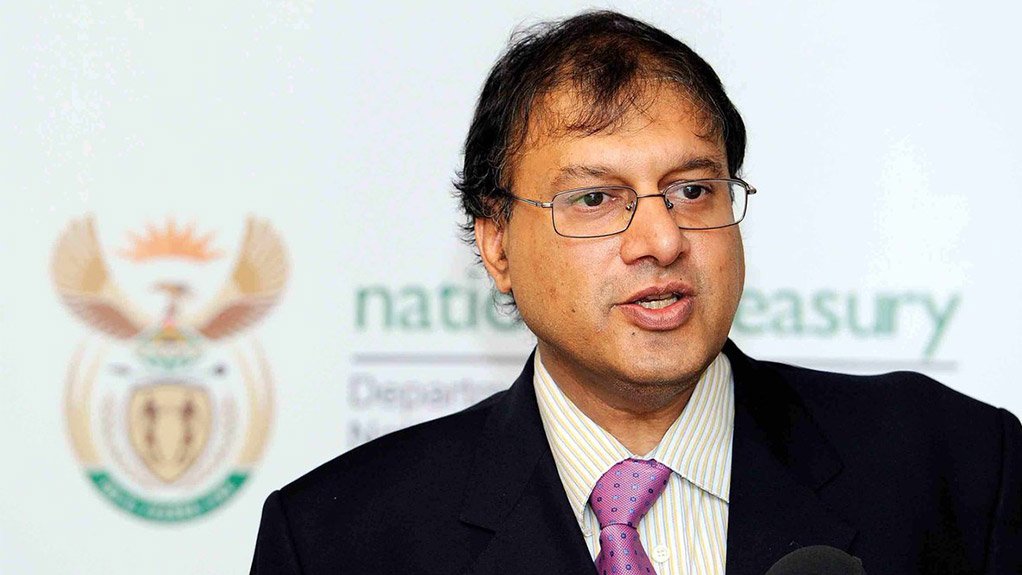National Treasury acting director-general Ismail Momoniat said the medium-term budget made allocations to struggling parastatals to supplement infrastructure investment for growth, warning some were so dysfunctional that they were close to becoming "zombies".
Momoniat was leading a delegation that briefed a joint sitting of Parliament's Standing Committee on Finance and Parliament's Select Committee on Finance. The briefing was a response to submissions received on the Revised Fiscal Framework and Revenue Proposals.
According to Select Committee on Finance chair Yunus Carrim, 10 submissions were received by the committees in the process from institutions including unions, nongovernmental organisations, and business lobby groups.
Submissions criticised the Medium-term Budget Policy Statement's decision to take on a portion of Eskom's R400-billion debt, to allocate R2.9-billion to Transnet to return out-of-service locomotives, and an allocation of R23.7-billion to Sanral, as well as R3.4-billion to Denel.
Over the medium term, government consolidated spending on building new and rehabilitating existing infrastructure will increase from R66.7-billion in 2022/23 to R112.5-billion in 2025/26.
They were also alarmed that no relief was provided for households facing rising costs, other than a one-year extension of the Social Relief of Distress grant (SRD) to March 2024.
Decreasing fiscal space
Momoniat said there were views from institutions, but the provision of funds to ailing SOEs and remuneration often undermined allocations. He said "spending our way" out of the country's economic challenges alone would not bring growth.
"The difficulty we have, having been in a budget before, in 2008, when we were running a surplus, [was that] we had a lot of fiscal space. And in a sense, a lot of that fiscal space, then, was used over the next few years. We have had mediocre growth since say 2010 and it has reduced our fiscal space considerably," said Momoniat.
No zombie SOEs
Momoniat said while the National Treasury wanted to prioritise more spending on infrastructure, the spending on social grants and remuneration alone numbered R1-trillion. He said the special appropriations for SOEs like Transnet were there to get entities functioning to catalyse growth.
"We tend to squeeze out funds for infrastructure and maintenance, funds that are growth-enhancing. And yes. The issue of the SOEs taking money. They have almost become like a fourth sphere of government, wanting their share of the equitable share.
"And if we don't want to fund some of them, you know, we've got to take a view either some of them need to be closed down if you don't want to fund them, or you fund them so little that they become like zombie companies, they can't really do much. And that is the difficulty we face," said Momoniat.
He said it was vital to have Transnet healthy and operating at optimum levels to get the freight and logistics sector working again.
A permanent grant comes with a tax
Regarding the basic income grant proposals, Momoniat said any permanent increase in non-capital expenditure by the fiscus, like a new grant, will have to come with a tax increase in the order of R40-billion to R140-billion.
Deputy director-general in the budget office, Edgar Sishi, said Treasury understood that the basic income grant was a political decision that did not lie in its domain. He said Cabinet gave the National Treasury guidance on the decision to extend the Social Relief of Distress grant by a year.
"Our humble opinion in this regard is that the political decision needs to centre around not just what we want to do but also what the trade-offs are, because everything has trade-offs. So, for the basic income grant, there are trade-offs in respect of what that means for the taxes you have to raise, who must raise those taxes, and what the impact would be on the economy and investment," said Sishi.
Sishi said Treasury needs to see a higher level of investment to improve growth and job creation with high employment multipliers. He said this was why the budget for infrastructure investment was so highly prioritised in the MTBPS.
EMAIL THIS ARTICLE SAVE THIS ARTICLE
To subscribe email subscriptions@creamermedia.co.za or click here
To advertise email advertising@creamermedia.co.za or click here











